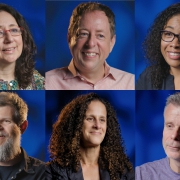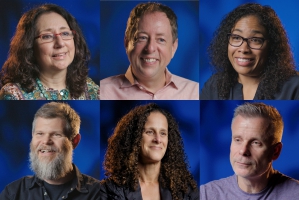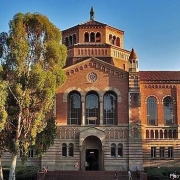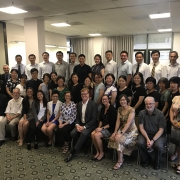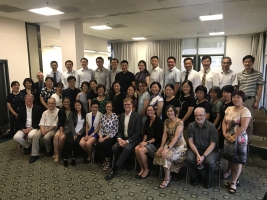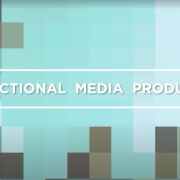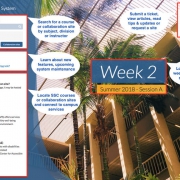STEM Educational Innovation and CAT’s CEA
Three members of the Center for the Advancement of Teaching recently published research relevant to the science of teaching and learning that advances our understanding of effective teaching in STEM fields. These outstanding researchers are Roshini Ramachandran, formerly in the Department of Chemistry and Biochemistry at UCLA and now at CAT’s Center for Educational Assessment, Erin M. Sparck, a Postdoc in CEA, and Marc Levis-Fitzgerald, Director of CEA. Their work focused on increasing student engagement and learning in a large general chemistry course. They found that the use of application-based science videos as homework assignments enhanced students’ understanding of key concepts. Their research on effective STEM teaching innovations was published in The Journal of Chemical Education, February 22, 2019, and can be accessed here: https://pubs.acs.org/doi/10.1021/acs.jchemed.8b00777
The abstract:
“Numerous online resources provide a variety of content for a wide range of STEM topics; however, they tend to function as isolated tidbits that provide content-specific knowledge. Application-based science education videos address the overlooked issue of concept to application by implementing experimental components in their videos and fostering connections with everyday applications. We utilized the Journal of Visualized Experiments (JoVE) peer-reviewed science education videos as homework assignments to supplement lectures on the topics of enthalpy, entropy, rate laws, and Le Châtelier’s principle in a second-term general chemistry course. Student learning was assessed through the analysis of pre- and post-video conceptual quizzes, and value surveys were also conducted to gather student feedback about the videos. Our investigation shows that using these videos in the course significantly improved student learning and reinforced conceptual understanding for important foundational concepts, and these results hold even for students who did not feel positively toward the videos.”


